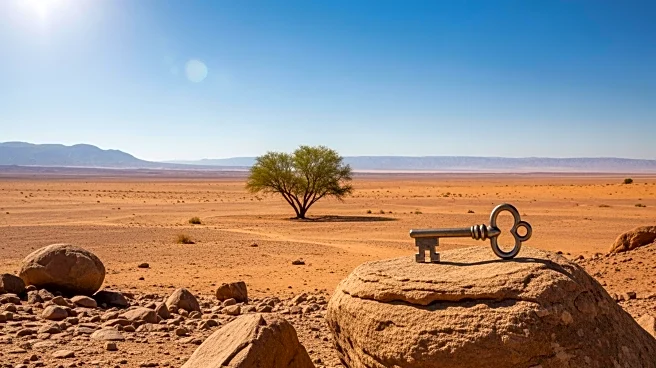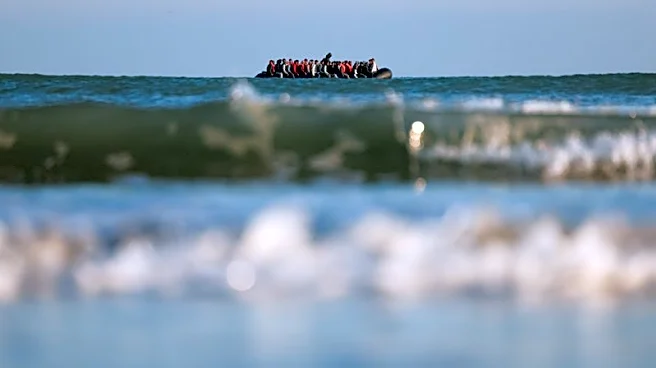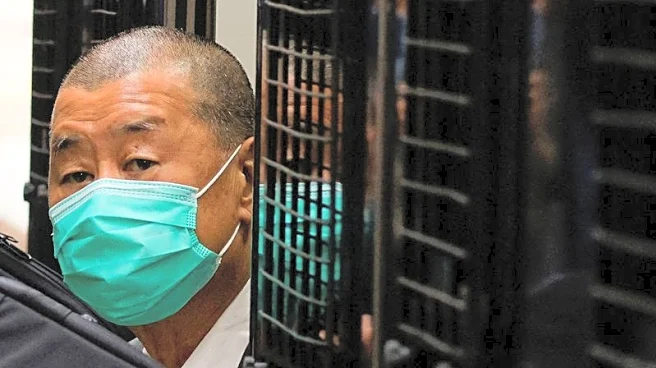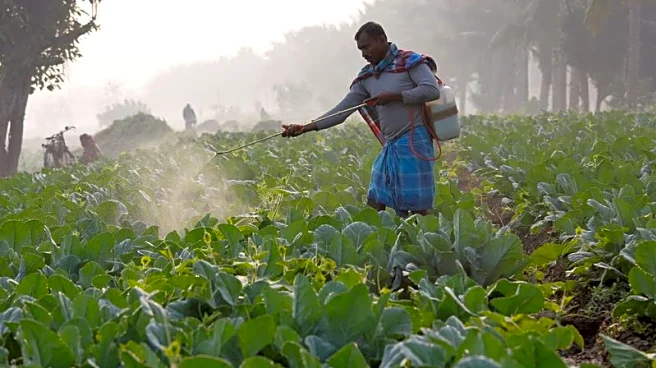What's Happening?
The ongoing struggle for self-determination in Western Sahara remains a significant international issue, as highlighted by recent discussions surrounding the region's status. Despite Morocco's claims of
sovereignty and its promotion of an autonomy plan as a final settlement, Western Sahara is still listed by the United Nations as a Non-Self-Governing Territory. The UN Security Council's recent resolution, which extends the mandate of the United Nations Mission for the Referendum in Western Sahara (MINURSO), underscores the unresolved nature of the conflict. The resolution does not endorse Moroccan sovereignty but instead frames the issue within the context of seeking a political solution consistent with self-determination. The Sahrawi people continue to face military occupation and forced exile, while advocating for their right to self-determination through peaceful protests and international advocacy.
Why It's Important?
The situation in Western Sahara is a critical example of the broader challenges associated with decolonization and self-determination. The ongoing conflict affects regional stability in North Africa and has implications for international law and human rights. The Sahrawi people's struggle highlights the importance of adhering to international legal standards and the need for a transparent political process that respects their rights. The international community's divided stance on the issue reflects broader geopolitical dynamics, with potential impacts on diplomatic relations and regional alliances. The resolution of this conflict could set a precedent for other decolonization efforts and influence global discussions on self-determination and human rights.
What's Next?
The path forward for Western Sahara involves continued international advocacy and diplomatic efforts to achieve a fair and lasting solution. Key steps include establishing a genuine political mechanism for the Sahrawi people to choose their future, ensuring effective human rights monitoring, and addressing the exploitation of natural resources with the consent of the Sahrawi people. The international community, including the United Nations, will play a crucial role in facilitating dialogue and ensuring compliance with international law. The outcome of these efforts will significantly impact the Sahrawi people's future and the broader geopolitical landscape in the region.
Beyond the Headlines
The Western Sahara conflict raises important ethical and legal questions about the rights of indigenous peoples and the responsibilities of occupying powers. The Sahrawi people's resilience in the face of occupation and exile underscores the enduring power of cultural identity and community solidarity. The situation also highlights the challenges of balancing national sovereignty with international legal obligations, particularly in regions with complex historical and political contexts. The resolution of this conflict could influence global norms regarding decolonization and self-determination, potentially affecting other regions with similar disputes.










